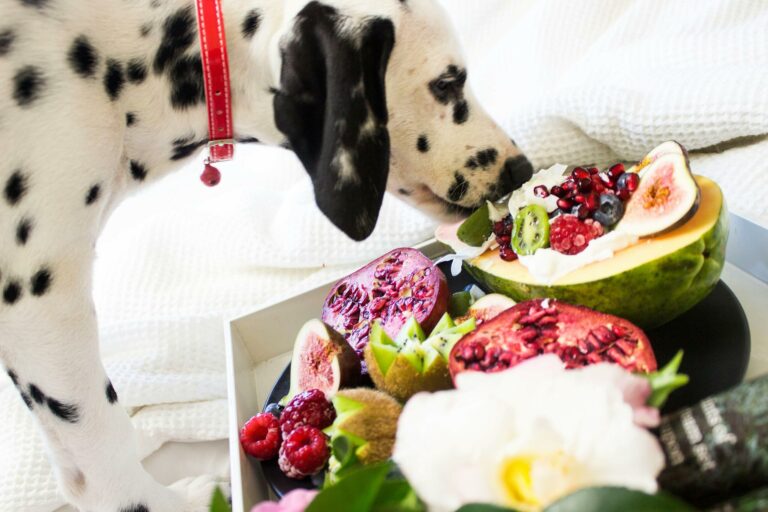8 Tips for First-Time Dog Parents
8 Tips for First-Time Dog Parents
First-time dog parents embark on an exciting journey full of happiness, friendships, and new duties. This guide will provide insightful information and beneficial advice to ensure a happy and fulfilling relationship with your new best friend.

8 Tips for First-Time Dog Parents
-
Choose Wisely
Consider things like size, energy level, grooming requirements, and disposition. Before becoming a dog parent, keep in mind that every breed has particular qualities and requirements, so take your time in selecting the ideal breed for you and your family.
-
Puppy-Proofing your Home
As a dog parent, you should eliminate any potential risks, such as small objects that could be swallowed, electrical cables, and hazardous plants. Add lots of chew toys, a cozy bed, and bowls for food and drink to keep your dog occupied in a designated space.
Puppy-proof your house to make it a secure and friendly space for your new pet.
-
Having a Good Environment
Most dogs love to be a part of family time and enjoy both indoor and outdoor times unless they are stray and require a separate location to grow and get comfortable.
While it may be simpler for dog parents to get a puppy than for an adult dog, all dogs should have a happy and peaceful environment with their dog parents.
-
Have a Routine for your New Dog
Spend time every day for playtime, walks, and activities that will strengthen your bond with your dog. When it comes to training, consistency is important, so have patience and follow your regimen.
-
Positive Socialization
For a puppy to be confident and well-adjusted, early socialization is essential. Start exposing your dog to a variety of people, animals, places, and activities at an early age to help in the development of positive social skills.
Try to enroll your dog in dog daycare or puppy courses to give them scheduled socializing chances and boost their self-esteem.
-
Regular Vet Care
Maintaining your dog’s health requires regular veterinary care. Arrange an appointment for yearly physicals, immunizations, and preventative care treatments like dental work, and tick prevention.
If your dog’s behavior or health changes, pay attention to it and let your veterinarian know if you have any concerns.
-
Balanced Diet
Based on your dog’s age, size, activity level, and any dietary restrictions, pick high-quality dog food that will keep them healthy. Consult your veterinarian about the right portion sizes and feeding plan for your dog.
Getting overfed can result in obesity and other health issues, so it’s critical to keep an eye on your dog’s weight and make any dietary adjustments.
-
Maintain a Good Hygiene
All dogs, regardless of size or breed, like playing and rolling around. Regular grooming is essential to prevent matted hair, rough skin, fleas, ticks, and other insects that may like living on your dogs.
Additionally, keep up with other grooming needs including nail trimming, skin inflammation, circulation, and so on.
4 Beneficial Food for Your New Dog
-
High-Quality Protein
Protein is an essential part of any dog’s diet since it promotes healthy muscular growth and repair. Fish, poultry, beef, and chicken are all great sources of lean protein.
-
Fruits
Fruits contribute vitamins, minerals, and natural sweetness to your dog’s diet, making them a tasty and healthy addition. Fruits like apples, bananas, grapes, and melons are popular choices for dogs. These fruits supply fiber, water, and antioxidants.
-
Dry and Wet Dog Food
While adding healthful, fresh items to your dog’s diet is important, commercial dog food of the highest caliber is also vital for providing balanced nutrition and necessary nutrients.
- Dry dog food, commonly referred to as kibble, is affordable and practical, offering dogs of all shapes and sizes a complete and well-balanced diet. Seek out recipes where real meat is the primary ingredient and steer clear of goods that have artificial additives, fillers, or by-products.
- With a higher moisture content than dry food, wet dog food—which is sometimes sold in cans or pouches—may be advantageous for dogs who require extra hydration or who like softer textures.
-
Eggs
For dogs, eggs offer a cost-effective and wholesome source of protein that is rich in vital amino acids, vitamins, and minerals. They are very high in protein, choline, and biotin, which promote brain health, coat health, and muscle growth.
Give your dog boiled eggs as a wholesome complement to their usual diet or as a full, balanced meal.
Final Thoughts
It’s a thrilling and rewarding experience to become a first-time dog parent, but it also calls for meticulous preparation, devotion, and hard work.
You may approach this journey with confidence and make sure that you and your animal companion have happy and fulfilled lives by paying attention to these eight essential tips.
Each dog is different, keep in mind that you should approach the pleasures and difficulties of being a pet parent with patience, flexibility, and an open mind.








